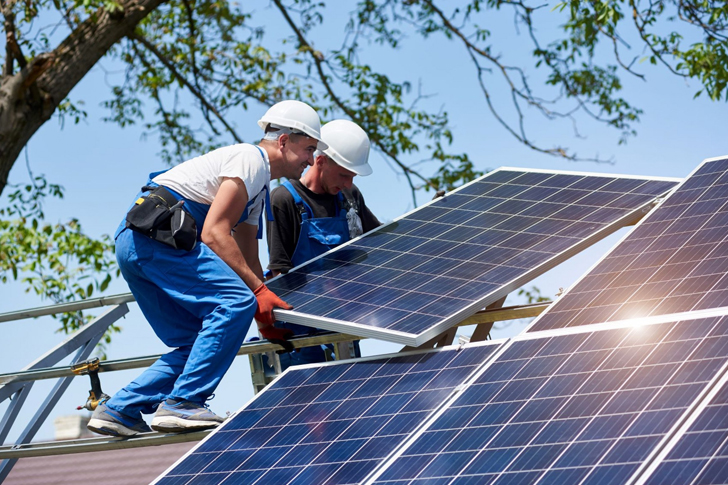How Seniors Can Benefit from Reduced Solar Panel Prices
For seniors, cutting down on expenses is often a priority, and one significant way to reduce costs is through the installation of solar panels. Solar energy not only lowers utility bills but also offers a dependable, low-maintenance energy source that can significantly enhance quality of life during the golden years. Additionally, tapping into solar power is environmentally friendly, helping seniors contribute to a sustainable future.

Understanding Solar Panel Costs and Savings
The upfront cost of solar panels can deter many; however, numerous factors have led to a significant reduction in prices. Over the past decade, the cost of installing solar photovoltaic (PV) systems has fallen by about 70%, according to the Solar Energy Industries Association (SEIA). The average cost now hovers around $2.77 per watt. For a standard residential solar panel system, this translates to approximately $16,000 to $21,000. After factoring in tax credits and incentives, the net cost can be much lower.
Available Government Incentives and Subsidies
A pivotal element in obtaining affordable solar panels is leveraging government incentives. For instance, the Federal Solar Investment Tax Credit (ITC) allows you to deduct 30% of the cost of installing a solar energy system from your federal taxes. This incentive has been extended through the end of 2023 and will decrease incrementally in subsequent years.
Many states also offer additional incentives such as rebates, property tax exclusions, and state tax credits which can further reduce the upfront cost. It’s essential for seniors to research the specific incentives available in their state.
Special Programs Targeting Seniors and Low-Income Households
Some states and non-profit organizations offer special programs aimed specifically at seniors and low-income households to make solar technology more accessible. For example, programs like California’s Single-family Affordable Solar Housing (SASH) program, explicitly assist low-income seniors in obtaining solar panels at little to no cost.
Furthermore, the Low-Income Home Energy Assistance Program (LIHEAP) can sometimes be used to finance solar panel installations, though availability and rules vary by state.
Choosing the Right Solar Installation Company
To get the best deal on solar panels, it’s crucial to select the right installation company. Look for companies that offer special discounts for seniors or have a robust track record of assisting older customers. Always request multiple quotes to compare options. Additionally, check into financing arrangements offered by installers; some may offer zero-down payment plans, which can alleviate the burden of upfront costs.
Participation in Community Solar Projects
Community solar projects are an excellent option for seniors who may not have suitable roofs for solar panels or who live in multi-unit buildings. Participants in community solar projects benefit from the electricity generated, which is reflected in reduced monthly utility bills. They’re ideal for renters or individuals in assisted living facilities who still wish to save on energy costs and support renewable energy.
Home Energy Audits: Maximizing Solar Benefits
Before installing solar panels, conducting a home energy audit is advisable. This assessment can help pinpoint areas where energy efficiency can be improved, ensuring that seniors get the most benefit from their solar panels. Energy audits can highlight ways to reduce energy consumption further, enhancing the overall savings from solar installation.
Conclusion: The Long-Term Value of Solar Panels for Seniors
The initial cost of solar panels is mitigated by long-term reductions in energy bills and increased home value. For seniors, especially those on fixed incomes, the cumulative savings over time can be substantial. Furthermore, solar panels typically come with warranties of 20-25 years, aligning perfectly with the needs of seniors seeking long-term, hassle-free benefits.
By understanding the available options and utilizing the strategies outlined above, solar technology becomes an accessible and wise investment for seniors looking to decrease their environmental impact and save money.







Recent Comments